Beneath the surface of every successful patient care team and positive healthcare workplace lies a common factor: effective communication. In the nursing field, communication is not only the exchange of information. It requires understanding, empathy and precision — with details subject to change at a moment’s notice.
The Direct-Entry Master of Science in Nursing (DEMSN) from University of Jamestown addresses this vital aspect of nursing by equipping students with the essential skills needed for effective communication in healthcare settings. Through a unique combination of online coursework and in-person healthcare clinicals, students gain hands-on experience that prepares them to immediately step into nurse leadership roles upon graduation.
Nursing Communication Techniques
Beyond mastering the technical skills to properly assess and treat patients, nurses are expected to hone a variety of communication skills as they interact with patients, physicians and colleagues.
Verbal communication includes the words nurses use when speaking with patients or other team members. It is crucial for nurses to be clear, concise and compassionate in their delivery to avoid any confusion, according to Indeed.
Nonverbal communication, such as body language, facial expressions and tone of voice, can often convey more than words. Being aware of these cues allows nurses to better understand and respond to the emotions and needs of their patients, Indeed reports. Active listening, eye contact and compassionate responses can be important steps toward building trust with patients. Written communication is also essential for documenting patient care, ensuring accurate information is shared across shifts and among healthcare professionals.
Many hospitals implement frameworks to ensure that their staff have the appropriate tools to communicate with each other. The American Hospital Association promotes TeamSTEPPS, or Team Strategies and Tools to Enhance Performance and Patient Safety. The evidence-based training curriculum successfully integrates communication and teamwork principles into healthcare systems. Nurses and other healthcare professionals focus on four subject areas: leading teams, situation monitoring, communication and mutual support.
One pillar cannot succeed without the other. As part of the communication pillar, nurses learn how to practice closed-loop communication and conduct callouts to ensure everyone understands the information being communicated, among other tools.
Why Is Communication Important in Nursing?
As the American Association of Critical-Care Nurses points out, “skilled communication can save lives.” If team members feel comfortable having open and honest conversations, they can improve patient outcomes, collaborate across different settings and help other nurses get up to speed on a patient’s care plan.
When TeamSTEPPS communication techniques are effectively applied, the tools decrease inefficiencies, improve patient and staff satisfaction, decrease expenses, lower readmissions and increase patient safety, according to the academic journal Nursing Made Incredibly Easy. Those outcomes mean lower staff turnover and a higher likelihood of creating a work environment where healthcare professionals feel respected and accepted.
In addition, nurses seek to establish trusting relationships with patients and often do so through a practice known as therapeutic communication. By providing reflective and nonjudgmental feedback to patients in an effort to help them clarify their own thoughts, nurses can improve the likelihood that a patient will meet their goals and follow their individualized care plan, according to the book “Nursing: Mental Health and Community Concepts.”
Coursework offered by the University of Jamestown lays the foundation for this kind of effective communication. The Introduction to Professional Nursing course presents students with the concepts of patient-centered care, inter-professional communication and the clinical decision-making process that nurses must navigate as they make informed judgments.
Later, nursing students get exposure to the latest healthcare software through the Healthcare Technologies and Informatics Course, learning how to navigate electronic health records, telehealth and other applications supporting patient education and communication.
As students enter their fourth semester and complete the Care Management III: Adult and Child Health course, they further hone their communication skills by experiencing patient care situations within the classroom, simulation center and direct patient care settings. The course enhances communication, leadership and clinical judgment skills as nurses learn to care for patients with increasingly complicated health conditions involving their cardiovascular or neurological systems.
Enhance Nurse Communication Skills With the University of Jamestown
Effective communication is a cornerstone of nursing practice, and the University of Jamestown’s Direct-Entry MSN program equips future nurses with the skills they need to navigate the complexities of the healthcare environment. When students graduate from the hybrid program, they have mastered the necessary communication techniques to support their professional practice, promote collaboration and foster therapeutic relationships to improve patient outcomes.
Learn more about the University of Jamestown’s Direct-Entry Master of Science in Nursing (DEMSN) program.
